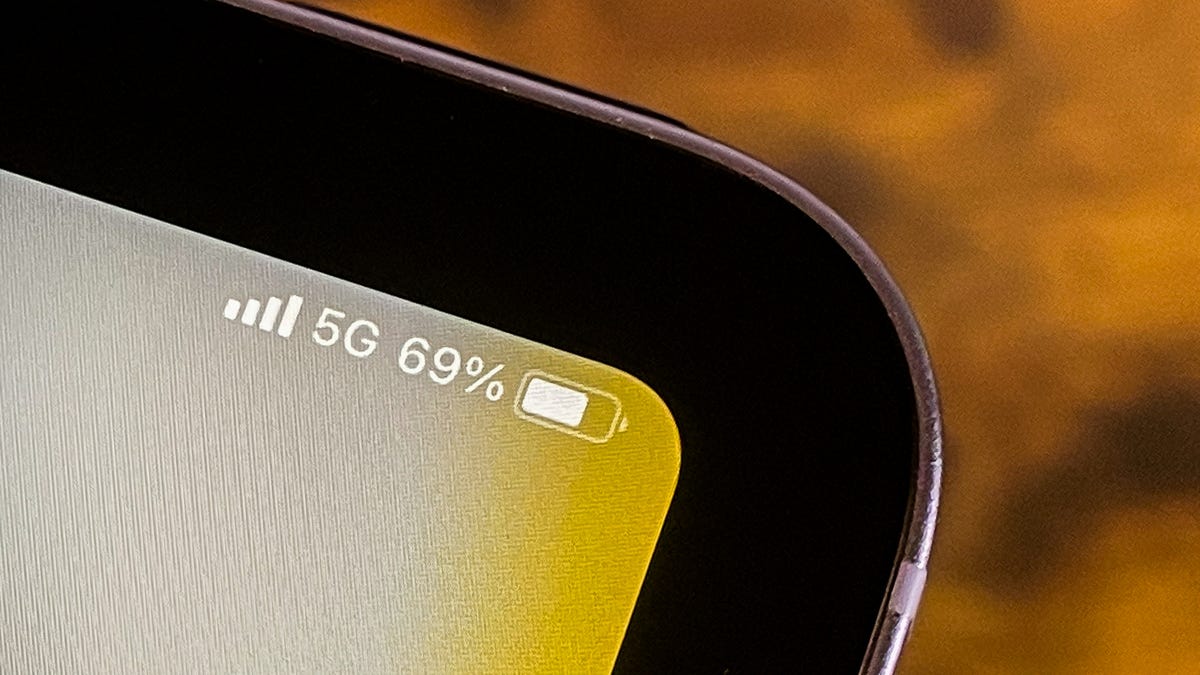AT&T, Verizon adjust 5G launch plans around airports as carriers blast FAA over delays
The wireless carriers will still launch C-band 5G on Wednesday, albeit in a scaled-back fashion.

AT&T's and Verizon's respective launches of faster 5G networks on Wednesday will go ahead, but with some adjustments to their plans. After airlines on Monday warned of significant travel disruptions if the launch of C-band 5G went ahead, both carriers announced on Tuesday that they would be making some changes to the roll-out plans.
"At our sole discretion we have voluntarily agreed to temporarily defer turning on a limited number of towers around certain airport runways as we continue to work with the aviation industry and the [Federal Aviation Administration] to provide further information about our 5G deployment, since they have not utilized the two years they've had to responsibly plan for this deployment," an AT&T spokesperson said in a statement.
"We are frustrated by the FAA's inability to do what nearly 40 countries have done, which is to safely deploy 5G technology without disrupting aviation services, and we urge it to do so in a timely manner," the statement continues. "We are launching our advanced 5G services everywhere else as planned with the temporary exception of this limited number of towers."
In its own statement, Verizon announced that it too will be "voluntarily" limiting its C-band deployments (what it calls "5G Ultra Wideband") around airports. The carrier had initially planned to cover 100 million people with the faster flavor of 5G this month, but has since revised that number to 90 million people as a result of the adjustments.
Like AT&T, Verizon placed blame on the FAA and the aviation industry.
"The [FAA] and our nation's airlines have not been able to fully resolve navigating 5G around airports, despite it being safe and fully operational in more than 40 other countries," the company said in its statement.
"The truth is that this has been a nosebleed for both Verizon and AT&T, two-thirds of the wireless industry or more than two-thirds," Chris Sambar, AT&T's executive vice president of technology operations, told CNET on Tuesday.
"It's a pretty poor reflection on the FAA, unfortunately, that all of these other countries have been able to launch this and we haven't been able to do it here. So it's a little frustrating."
The latest in a long line of delays
The latest adjustments come amid an ongoing battle between the wireless and aviation industries over C-band, a form of midband wireless airwaves that telecom companies are relying on to provide significant speed and performance improvements compared with their existing 4G and 5G cellular networks.
Verizon and AT&T spent heavily last year to acquire the C-band spectrum when the Federal Communications Commission put it up for auction and both had originally planned to begin deploying 5G over the airwaves late last year. In November the aviation industry, arguing that the frequency of the airwaves operates too closely to altimeters used in airplanes to take off and land in low-visibility environments, pushed for and received a delay of the launch for the new networks until Jan. 5.
Earlier this month, just ahead of the Jan. 5 launch, the aviation industry pushed for a second delay. The carriers agreed at the behest of the Biden administration.
President Joe Biden put out a statement on Jan. 4 praising the agreement between the wireless companies and aviation industry, noting that the deal "puts us on track to substantially reduce disruptions to air operations when AT&T and Verizon launch 5G on Jan. 19."
CNN reports that the Biden administration is in talks with the FAA, FCC, airlines, aircraft manufacturers and wireless carriers ahead of Wednesday's launch. On Tuesday afternoon, the White House weighed in on the latest developments.
"I want to thank Verizon and AT&T for agreeing to delay 5G deployment around key airports and to continue working with the Department of Transportation on safe 5G deployment at this limited set of locations," Biden said in a statement Tuesday. "Expanding 5G and promoting competition in internet service are critical priorities of mine, and tomorrow will be a massive step in the right direction. My team has been engaging non-stop with the wireless carriers, airlines, and aviation equipment manufacturers to chart a path forward for 5G deployment and aviation to safely co-exist – and, at my direction, they will continue to do so until we close the remaining gap and reach a permanent, workable solution around these key airports."
In a statement Tuesday afternoon, Transportation Secretary Pete Buttigieg thanked the wireless carriers for "working with us to protect the flying public and the country's supply chain."
"The complex US airspace leads the world in safety because of our high standards for aviation, and we will maintain this commitment as wireless companies deploy 5G," he said.

